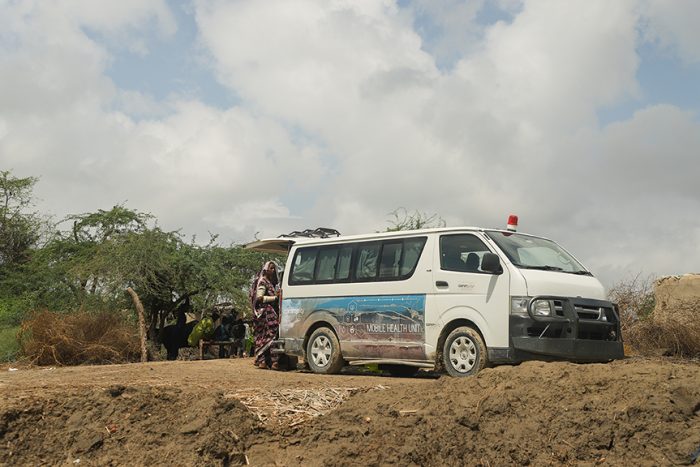CWSA Mobile Health Camp: Doctors that listen
Middle-aged Krishen Kohli lives in the hamlet of Hanif Khanzada, ten kilometres from Tando Jan Mohammad in Mirpur Khas district. He is a landless farmer who works as a labourer for a local landowner. He has six daughters and a son. Their son came at number four. “We wanted a few more sons so we kept at it and all God gave us was another three daughters,” he says with a chuckle.
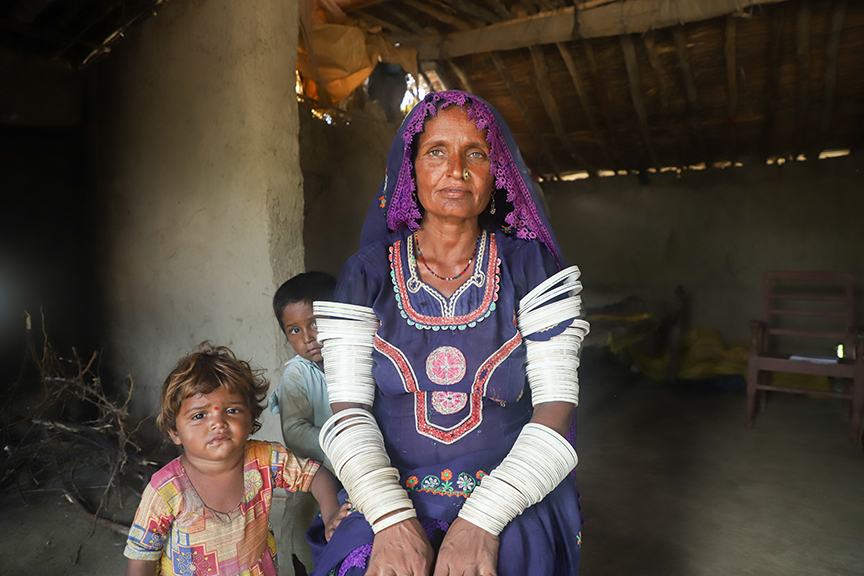
He owns no property; even the home he lives in is built on the landlord’s land and he makes a very meagre living from his work which is irregular. Krishen believes that a child sent into the world is by the will of God and so it is His job to provide them food. Even if that food is only chilli paste and millet bread? “Yes. The child is fated to have only that much.” Krishen’s faith in kismet is as firm as that of anyone who is very poor and has no control over circumstances. In any case, he knows of no family where the man and wife have lived together for fifteen years or more and have fewer than ten children. As for himself, he says he has had enough. He does not want any more children.
Amidst the flood crisis, Kirshan’s residence suffered extensive damage as a result of the flood. In response, he undertook the task of constructing a new dwelling using locally available materials such as wood and mud. Additionally, Kirshan faced health challenges, prompting him to seek medical assistance from the Mobile Health Unit (MHU) of Community World Service Asia due to the inaccessibility of conventional hospitals. The MHU played a pivotal role in providing relief during these difficult circumstances.
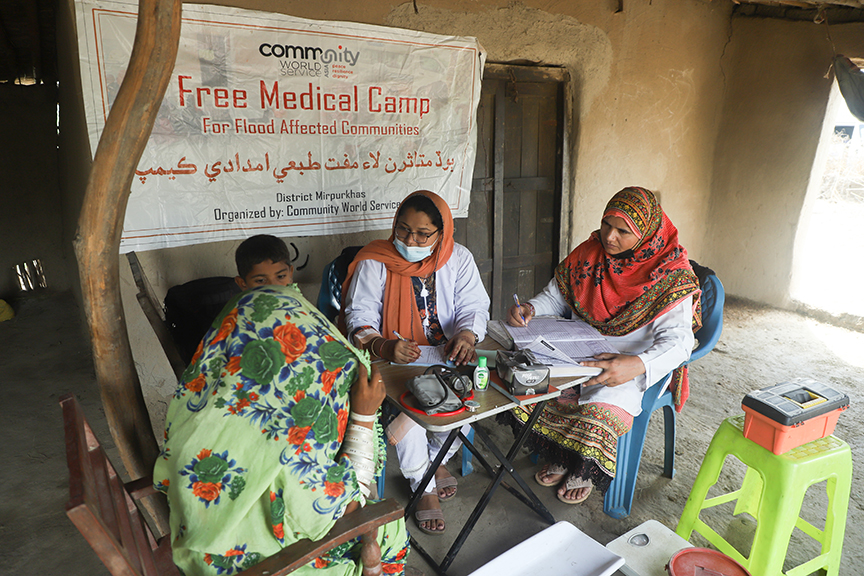
Community World Service Asia’s (CWSA) Mobile Health Unit (MHU) supported by Catholic Agency for Overseas Development (CAFOD) and Disasters Emergency Committee (DEC) was on a follow up visit after the first round. On both occasions Krishen had attended the health awareness session delivered by the CWSA social mobiliser and agrees that he and his wife should have had fewer children.
He was very pleased with the health camp. For the past about seven years, he has had ‘heat in the stomach’, the usual local term for acidity, and constipation but he did not go to the government hospital at Tando Jan Mohammad. Instead, he consulted a private doctor whose fee was PKR 500 (Approx. USD 1.7) and to fill his prescription Krishen parted with PKR 1300 (Approx. USD 4.5). Adding to that the to and fro fare, the cost of the visit went up to PKR 2500 (Approx. USD 8.8). That was beyond the capacity of a poor landless peasant and most of it was taken on loan from the landlord to be adjusted against Krishen’s wages. “The medication lasted me three months and when the course was done, I remained well for another five or six months,” reports the man.
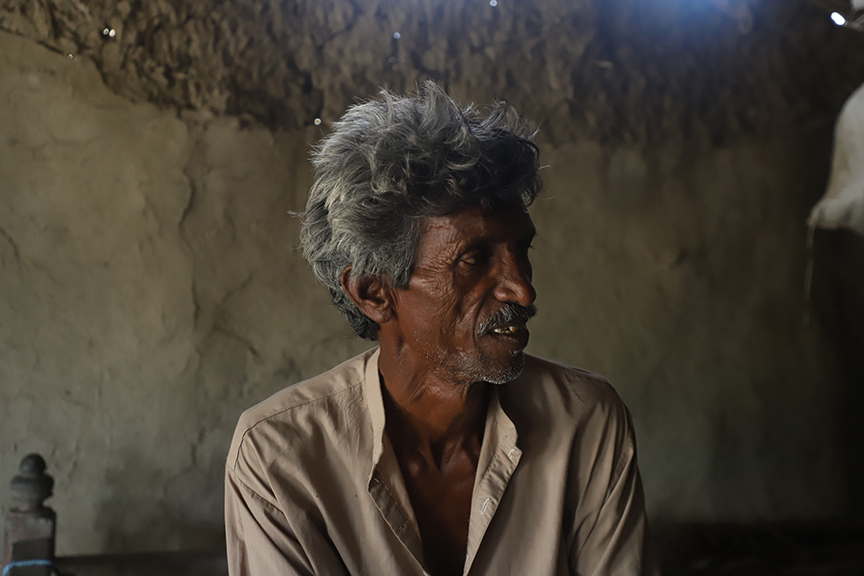
Dismissive of the government facility in Tando Jan Mohammad, Krishen says their free medication never works. Fifteen days earlier, on the first visit of the mobile health unit, he was given five pills, one for a day. And he had never felt better. This was such effective medication, he says, that it has improved his appetite as well. Now he was back for it. The health project had been extended on this very day and the facility was available to the village for more time. If Krishen were to visit the medical practitioner in town in 2023, he estimates he would be set back by about PKR 5000 (Approx. USD 17.6).
Gauri, another fellow resident of Tando Jam, is pregnant with her seventh child and she is not even thirty years old yet. She too has attended the health sessions and heard all about family spacing and that a small family is better fed than a large brood. Like Krishen, she too is not really convinced about a small family being ideal. One can hardly expect that when you live in a social and cultural eco-system that favours huge families.
The first two of Gauri’s babies were delivered by her mother, an experienced midwife. But then she was too old and did not wish to endanger the third child so Gauri went to the government hospital at Tando Jan Mohammad. “The doctor shouted at me, telling me to get back and wait outside. We are poor people and that is how they attend to us,” she complains. She sighs about the expense of coming and going and then being treated badly by the medical staff. After the first visit, she gave up and consulted a private maternity clinic that delivered her next two babies. Each visit delivery cost her PKR 20,000 (Approx. 70).
That put her husband under a huge debt to the landlord and it took a couple of years to repay. In which time Gauri had two more children who were delivered by an inexperienced midwife from a neighbouring settlement. And in September 2023, she was pregnant for the seventh time with plenty of child-bearing years ahead of her!
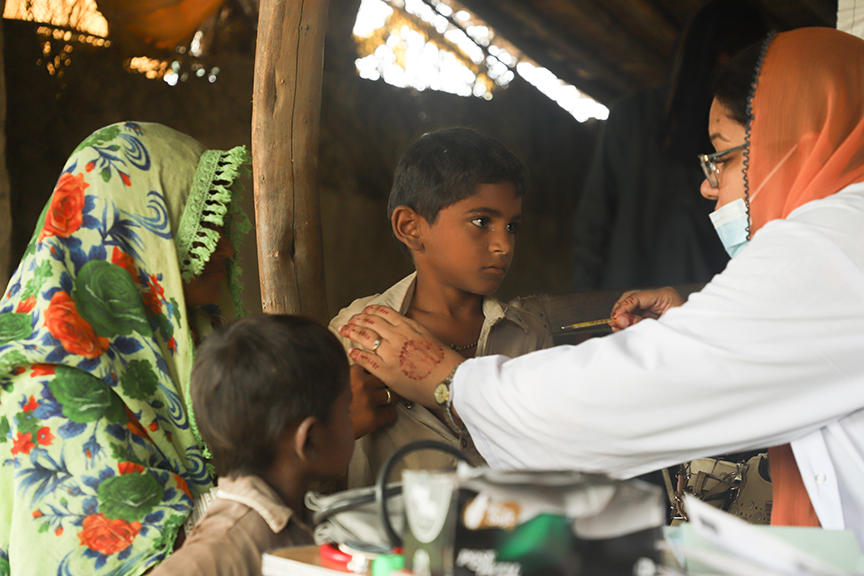
As useful as it is to treat recurrent scabies and respiratory tract infections – the most common complaints in the area – it is necessary to intensify health sessions on sexual and reproductive health of women and young girls in such areas. There needs to be greater emphasis on post-partum care and nutrition of families, women and children alike. Through this project, community mobilisers and health practitioners have engaged with communities on raising awareness and initiating dialogue on these needs but the focus has largely been on providing immediate health care to flood affected communities suffering from diseases and illnesses or needing maternal and neonatal care. There is definitely space to do more.
Meanwhile, the seventy odd women and men waiting in the shade of the trees outside the mobile health unit were happy that they were getting medication that worked. And it was totally free of cost. For women like Gauri who had only a few minutes earlier shrilly complained that government doctors did not even listen to her and others like her, the medical officer in the health facility was an angel.





